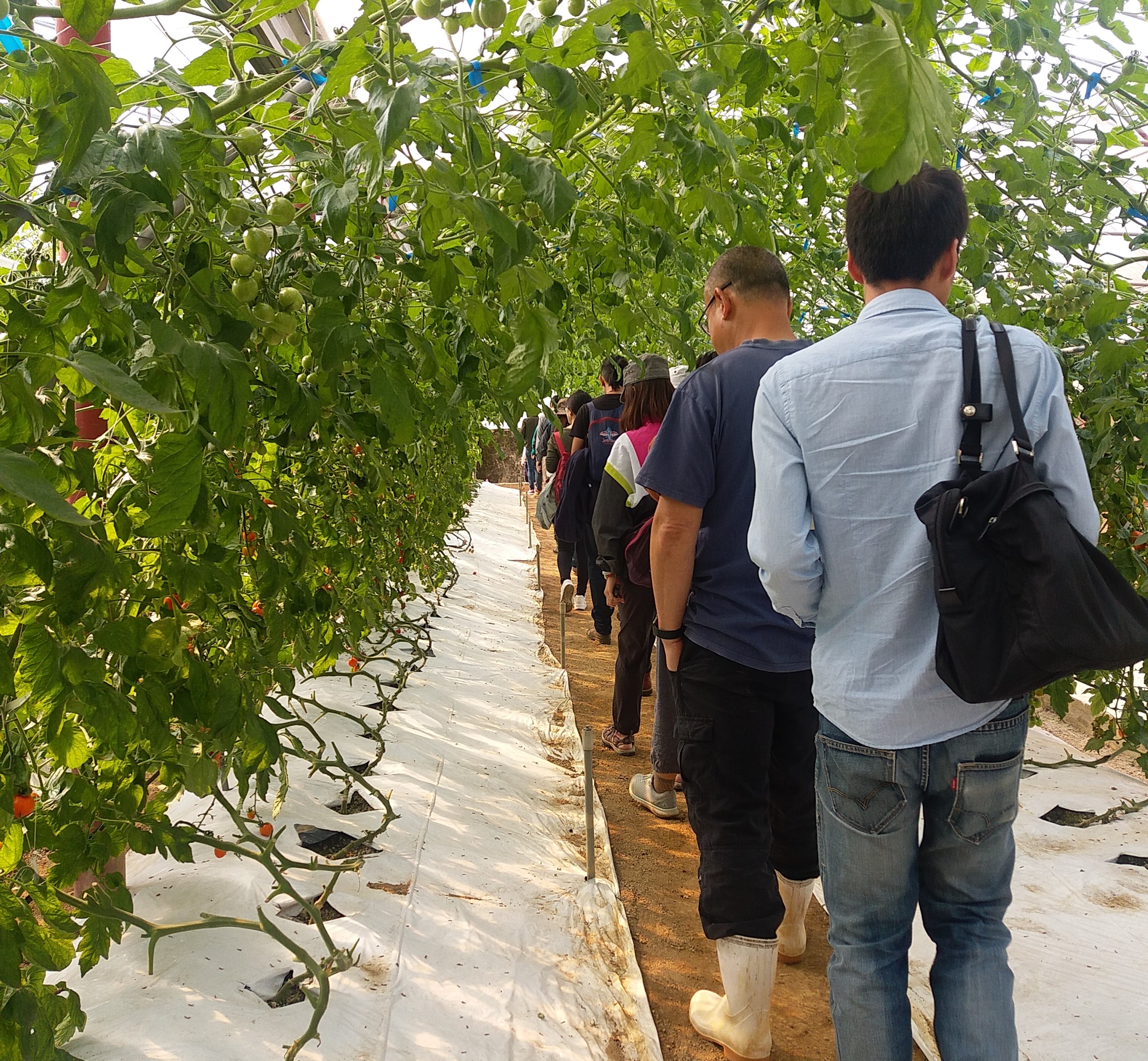Home » Agricultural Development and the Sustainable Agricultural Policy in Hong Kong
Sustainable Agriculture and its Implementation in Hong Kong
Agricultural Development and the Sustainable Agricultural Policy in Hong Kong
As Hong Kong has become highly urbanised and has shifted its focus to the tertiary industry, its agricultural sector has diminished and local food supply relies heavily on imports. Agriculture accounts for less than 0.1% of the local GDP in 2014 (Planning Department, HKSARG, 2016) and the self-sufficiency rate of vegetables was only 2% in 2016 (Food and Health Bureau & Agriculture, Fisheries and Conservation Department, 2014). The farmland is mostly private, with fragmented ownership, and the average farm size is only about 0.2 hectares. A great proportion of the agricultural land is owned by indigenous villagers or developers and has been left fallow, awaiting development instead of being leased to farmers. A lot of farmland has been converted to open car-parks and storage yards.
A majority of the farmers have reached their elderly years, and many are still using labour-intensive, traditional farming methods rather than embracing modern agro-technology and mechanisation. Major reasons include the lack of capital, short farmland tenure, and uncertainty regarding the profitability of new production methods. Organic farming is gaining popularity, but the costs are higher and the market demand is not yet mature.
In recent years, the general public and the government have recognised that sustainable local agricultural development could bring multiple benefits to the society, including diversification of food supply, provision of employment, education and recreation opportunities, recycling of waste, carbon reduction, as well as rural conservation. More young people are working as fulltime or part-time farmers, and more urban dwellers are engaging in urban agriculture or holiday farming. There are over a hundred leisure farms in Hong Kong to meet the growing public demand for recreational farming experiences.

New Agriculture Policy
In response to the growing support for sustainable local agricultural development, the Hong Kong government has decided to implement the New Agriculture Policy to promote the modernisation and sustainable development of local agriculture. Specific measures include (Food and Health Bureau & Agriculture, Fisheries and Conservation Department, 2016):
-
Setting up an an Agricultural Park to nurture agrotechnology and agro-business management;
-
Exploring the feasibility and merits of identifying and designating Agricultural Priority Areas that have higher agricultural value in order to facilitate their use for long-term agricultural purposes;
-
Setting up a Sustainable Agricultural Development Fund to provide financial support for the modernisation and sustainable development of local agriculture;
-
Facilitating the development of hydroponics and agro-technology;
-
Facilitating leisure farming; and
-
Enhancing food safety and marketing of local fresh produce.
Inadequacies of the New Agriculture Policy
The government’s promotion of sustainable agricultural development is generally appreciated, but some major inadequacies of the New Agriculture Policy have been identified by the public. For example, it did not set a target local self-sufficiency rate and no immediate measures were introduced to conserve existing farmland (both active and abandoned) for sustainable agriculture. The Sustainable Agricultural Development Fund seems to favour high-tech agriculture, making it difficult for small-scale farmers to get their share of support. The Agricultural Park concept also neglects the farmers’ need of living space in close proximity to the farm.
Continue to “Session 5: Cases of Sustainable Agriculture in Hong Kong”
© 2019 Centre for Civil Society and Governance at The University of Hong Kong
Except where otherwise noted, contents of this e-case is licensed under a Creative Commons Attribution-NonCommercial-ShareAlike 4.0 License.
![]()


